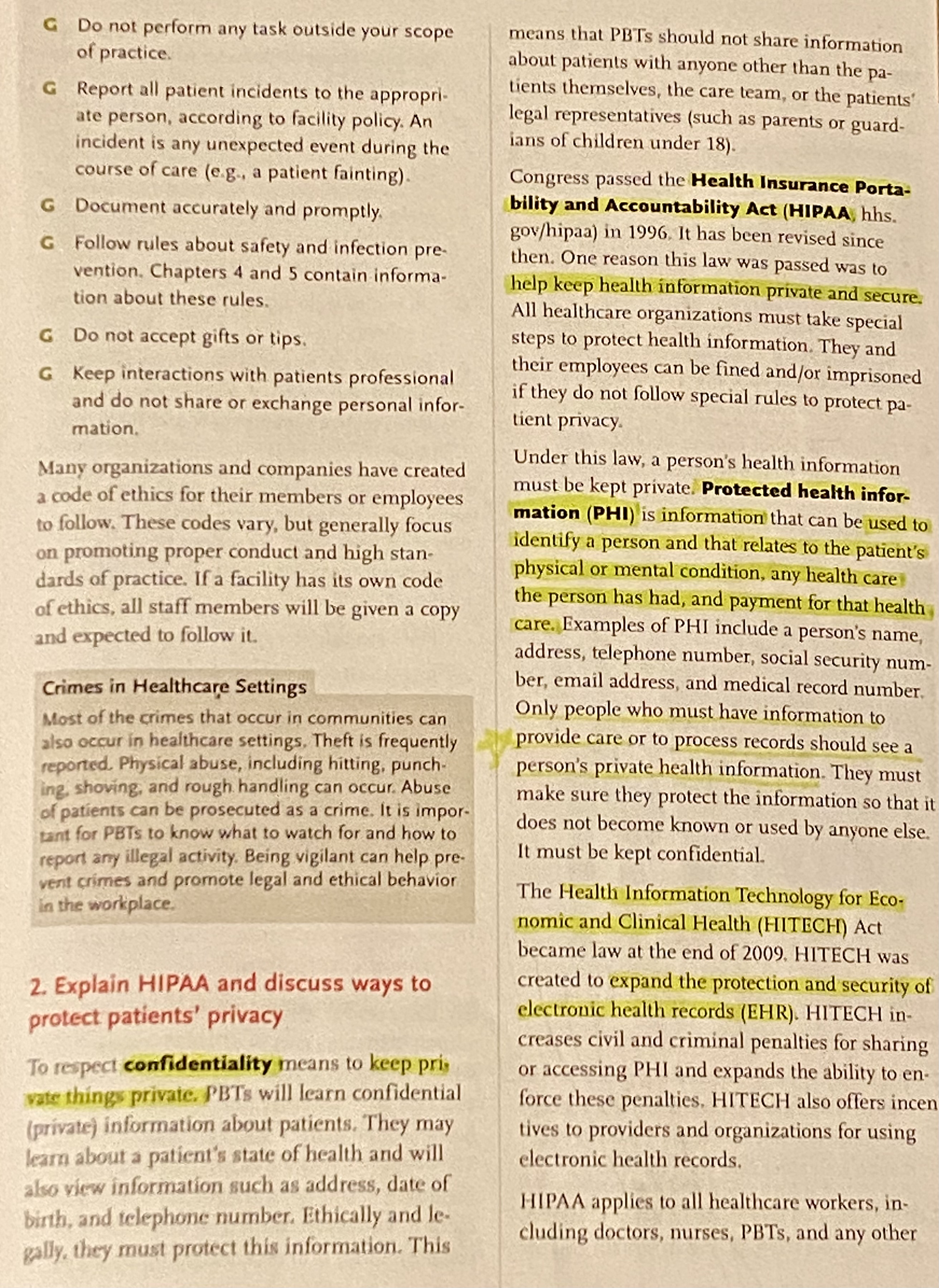Legal and Ethical Issues in Healthcare
1/24
Earn XP
Description and Tags
Flashcards covering key vocabulary related to legal and ethical issues in healthcare.
Name | Mastery | Learn | Test | Matching | Spaced | Call with Kai |
|---|
No analytics yet
Send a link to your students to track their progress
25 Terms
Ethics
Knowledge of right and wrong that guides behavior; a sense of duty and responsibility toward others.
Laws
Rules established by governments to help people live peacefully together and ensure order and safety.
Confidentiality
Keeping patient information private and not discussing cases except with care team members.
Incident
Any unexpected event during the course of patient care.
Confidentiality
To keep private things private; respecting patient's private health information.
Protected Health Information (PHI)
Information that can be used to identify a person and relates to their physical or mental condition, healthcare received, and payment for that care.
Health Information Technology for Economic and Clinical Health (HITECH) Act
Act created to expand the protection and security of electronic health records (EHR) and increases penalties for sharing or accessing PHI.
Centers for Medicare & Medicaid Services (CMS)
Federal agency within the U.S. Department of Health and Human Services that runs Medicare and Medicaid and oversees the regulation of laboratory testing.
Clinical Laboratory Improvement Amendments (CLIA)
Amendments outlining standards for clinical laboratories that test human specimens, with the goal of improving patient outcomes.
CLIA-waived tests
Simple, easy-to-perform tests that involve little risk of error, as determined by CMS.
Point-of-care tests
Testing done near the patient.
Criminal Law
Law that deals with offenses considered to harm all of society; acts are called crimes.
Civil Law
Law that deals with disputes between individuals; violations are called torts.
Negligence
Civil offense describing actions, or the failure to act, that result in injury to a patient.
Abuse
Purposeful mistreatment that causes physical, mental, or emotional pain or injury to someone.
Mandated reporters
Legally required to report suspected or observed abuse or neglect.
Consent
Agreement to treatment; can be general, informed/express.
Informed consent
Acknowledging that one understands the treatment they will receive and agrees to receive it which can be provided through a signed general consent form for routine care.
Assault
Use of words or actions to cause another person to feel fearful of being harmed.
Battery
Intentional touching of another person without permission.
Advance directives
Legal documents that allow people to decide what kind of medical care they wish to have in the event they are unable to make those decisions themselves.
Living will
Document outlining specific medical care a person wants or does not want to receive; type of advance directive.
Do-not-resuscitate (DNR)
Indicates that the patient does not wish for medical professionals to perform cardiopulmonary resuscitation (CPR) in the event of cardiac or respiratory arrest; type of advance directive.
Durable power of attorney for health care
Designates a person other than the patient to make medical decisions if the patient becomes ill or disabled; type of advance directive.
